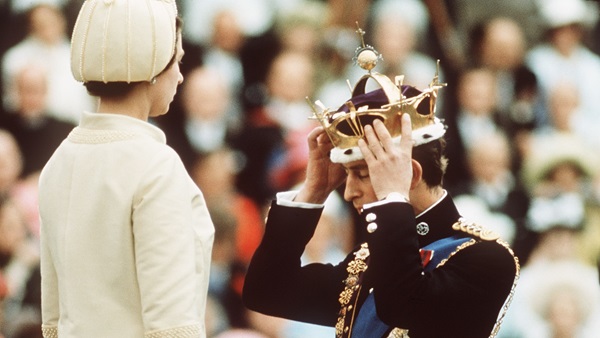May 12th stands as a pivotal date in British history, marked by a series of events that have shaped the nation’s trajectory. From political upheavals to scientific breakthroughs, this day has witnessed moments of significance that resonate through the centuries. In this article, we delve into the annals of history to explore the diverse array of events that have unfolded on May 12th, illuminating the interconnectedness of past, present, and future.
The Coronation of King George VI (1937)
On May 12, 1937, King George VI was crowned at Westminster Abbey following the abdication of his brother, King Edward VIII, the previous year. The coronation ceremony, conducted amidst the backdrop of looming international tensions in the lead-up to World War II, served as a symbol of continuity and stability for the British monarchy. George VI’s reign would be defined by the challenges of war and post-war reconstruction, yet his steadfast leadership would earn him the admiration of his subjects.
The Introduction of the NHS Prescription Charge (1952)
May 12, 1952, marked a significant development in the history of the British healthcare system with the introduction of prescription charges under the National Health Service (NHS). The imposition of charges for certain prescription medications, albeit at a nominal rate, represented a departure from the principle of free healthcare at the point of use established by the NHS. The decision to introduce prescription charges sparked debate over the equitable access to healthcare and the sustainability of public health funding—a debate that continues to resonate in contemporary discussions surrounding healthcare policy.
The First Transmission of the Pirate Radio Station, Radio Caroline (1964)
In the realm of media and broadcasting, May 12, 1964, witnessed the inaugural transmission of Radio Caroline, a pioneering pirate radio station that revolutionized the British radio landscape. Broadcasting from a ship anchored in international waters, Radio Caroline defied government regulations and monopolistic broadcasting practices, offering listeners an alternative to the state-controlled BBC. The station played a pivotal role in popularizing pop and rock music, galvanizing youth culture, and challenging the establishment’s control over the airwaves.
The Enactment of the Climate Change Act (2008)
May 12, 2008, marked a milestone in the global fight against climate change with the enactment of the Climate Change Act in the United Kingdom. The groundbreaking legislation committed the UK to reducing greenhouse gas emissions by at least 80% by the year 2050, compared to 1990 levels, making it the first country to enshrine such ambitious emissions targets into law. The Climate Change Act underscored the UK’s commitment to tackling the existential threat posed by climate change and set a precedent for international climate action.
The Ascension of Boris Johnson as Leader of the Conservative Party (2019)
On May 12, 2019, Boris Johnson emerged victorious in the leadership contest of the Conservative Party, succeeding Theresa May as Prime Minister of the United Kingdom. Johnson’s ascension to power heralded a new chapter in British politics, characterized by his unapologetic embrace of Brexit and his promise to deliver on the referendum mandate to withdraw from the European Union. As Johnson embarked on his premiership, he faced the formidable task of navigating the complexities of Brexit negotiations and steering the country through a period of profound political uncertainty.
The First Battle of Blythe Road (1941)
May 12, 1941, witnessed the first major clash between British and German forces on British soil during World War II, known as the Battle of Blythe Road. As part of the Luftwaffe’s strategic bombing campaign against industrial targets in the United Kingdom, German aircraft targeted factories and infrastructure in Birmingham, England. The ensuing battle, fought by Royal Air Force (RAF) fighters against German bombers, underscored the vulnerability of British cities to aerial bombardment and the resilience of the RAF in defending the home front.
The Release of the Profumo Affair Report (1963)
On May 12, 1963, the British government released the report on the Profumo Affair, a scandal that rocked the political establishment and captivated the public imagination. The affair, centered around the revelation of an affair between Secretary of State for War John Profumo and model Christine Keeler, exposed the intertwining of politics, espionage, and personal indiscretion. The fallout from the scandal would ultimately lead to Profumo’s resignation and tarnish the reputation of the Conservative government of Prime Minister Harold Macmillan.
The Investiture of Prince Charles as Prince of Wales (1969)
May 12, 1969, marked the investiture of Prince Charles as Prince of Wales at Caernarfon Castle in Wales. The ceremony, steeped in Welsh tradition and symbolism, affirmed Charles’s position as the heir apparent to the British throne and sought to strengthen the bonds between the Crown and the Welsh people. However, the investiture also sparked controversy, with some Welsh nationalists viewing it as an imposition of English authority and staging protests against the monarchy.
The Launch of the London Overground (2007)
On May 12, 2007, the London Overground, a suburban rail network serving Greater London and surrounding areas, was officially launched. The introduction of the Overground represented a significant expansion of London’s public transport network, providing improved connectivity and accessibility to residents and visitors alike. With its distinctive orange livery and modern amenities, the Overground has become an integral part of London’s transport infrastructure, facilitating travel and supporting economic development across the capital.
Conclusion
May 12th serves as a reminder of the fluidity of history and the pivotal moments that shape the course of nations. From royal coronations to legislative enactments, from cultural revolutions to political upheavals, the events that have unfolded on this date underscore the interconnectedness of past, present, and future. As we reflect on these turning points, we gain a deeper appreciation for the forces that have shaped the trajectory of British history and continue to shape its destiny.

